present laughter
I had to laugh at myself the other day, asking Tom when he FaceTimed if he’d had his tea (they are an hour ahead in Stockholm) and then asking what they had. Shades of the Royle family which, of course, is set in Stockport with Stockport writers/actors observing so much Stockport humour.
I caught myself laughing afterwards, then thinking about how much I laugh on a daily basis. I am appalled and horrified by what is happening here and around the world, but I can’t be like that all the time.If you can’t pull yourself out of the slough of despond, you’re well and truly stuck in the mire, and that’s not a good place to be.
[‘The Fight Between Carnival and Lent’ (1559) by Pieter Bruegel the Elder]
So laughter and release are vital. Comedy is the flip side of tragedy; the Greeks knew about tragic laughter, Shakespeare knew it, Chekhov did, all great comedians do. But the minute you begin to analyse what makes something funny, you lose the humour, and seriousness kills it dead. Try reading Le Rire (1900) by Henri Bergson - and not crying inside. There are many more theories of laughter and nearly all are supremely unfunny, although Mikhail Bakhtin and his ideas of the ‘carnivalesque’ in Rabelais and His World (1965) have stayed with me.
[Paddington 2]
I absolutely cannot fathom a studiedly and po-faced approach to life. Life can be terrible, it can be crap and dreadful, but laughter is always needed as a corrective. I find some people take life and themselves all too seriously, having clearly decided that serious must mean better, more grown-up, more worldly. Well, I disagree. I mean, the fact that the president of Ukraine was a comedian and the voice of Paddington Bear in Paddington and Paddington 2 tells you all you need to know. The older I get, the more I realise just how serious and angry the best comedians are beneath the humour. Charles Dickens leads the way.
Thinking about laughter has made me collect some laughs, so that I can access them in times of need and erosion of perspective.
[Hockney]
For a start, exhibitions which show no glimmer of a smile, not even an ironic one, are to be avoided. Too many these days are designed to make you feel guilty, ashamed, uncaring, and don’t hold back when spelling out what’s wrong with society (sad to say the Fitzwilliam is a prime example with three recent exhibitions which made me leave feeling both morally lacking and annoyed that this was the outcome). So let’s put the recent very entertaining Barbie exhibition in there together with the amazing Japanese replica food one (seen on the same day, huge uplift),
[Grayson Perry, 2012]
Anything by Grayson Perry (and his dirty laugh and TV programmes about art), Beryl Cook, David Shrigley, and David Hockney will elicit smiles.
Then I’ll gather in Bob Dylan’s Theme Time Radio Hour because of his ridiculously mannered delivery and inspired exploration of themes. Weirdly, Bob’s sad, depressing songs can also make me laugh. It’s counter-intuitive, but he and Leonard Cohen at their most mournful can be uplifting (as per this article which explains why). Even Bob Dylan himself laughs in Rainy Day Women Nos 12 and 35 and at the beginning of Bob Dylan’s 115th Dream it’s full-on deep, rich, infectious laughter, and I love the fact they kept this in.
[Basil “hello clouds! hello sky!” Fotherington-Thomas in the Molesworth books]
Mostly, though, I like gentle, word-based humour, nothing too harsh or brash or scathing. Wendy Cope’s poems and Ted Lasso’s positivity and the Molesworth books which were the first to make me cry with laughter when I was in hospital aged ten (the crying was partly to do with the agony the laughter caused after my operation). I’m not a fan of slapstick or cringe-making and embarrassing humour (it’s taken a long time to enjoy the US version The Office and even then there are scenes I can’t watch). I prefer easy-going daft stuff like Brooklyn Nine-Nine, Modern Family,
[‘Car Share’]
Car Share and I adored Friends for years (no, our Phoebe was not named after Phoebe Buffet; she was born in Belgium and we didn’t get Channel 4 there so completely missed the Phoebe Phenomenon. It was only when we came back that we realised there were a lot of Phoebes born around that time). I like clever humour, like the put-downs in Steve Martin’s Roxanne (1987) and Proust’s wit and self-deprecation. (Talking of self-deprecation, The Ballad of Wallis Island is lovely. Laughter and melancholy nicely balanced.)
The Beatles’ individual and collective senses of humour are some of the absolute best things about them. It was completely authentic classic Liverpudlian stuff, a useful defence against the snotty world of London producers and record labels, establishment journalists, and an often hostile American press, most of whom simply did not get it - or were taken aback by their irreverence. There were so many seriously good quips and retorts, puns, funny lyrics, outtakes in studios, and dry wit.
[rare photo of Brian Epstein laughing, wearing a Beatles wig (1964), taken by Ringo]
They never lost the Northernness of their humour.
[‘Acorn Antiques’ written by Victoria Wood]
And this is something I identify with readily. Reading the The Secret Painter (set in Warrington) made me laugh out loud in places, and reminded me again that this humour is very much a part of my background. The sort of thing that Victoria Wood
[Alan Bennett and Julie Walters]
and Alan Bennett mine so well. I read an old article about a study which showed the “North of England’s special brand of comedy relies on…the desire to prick pomposity and the ability to find the comic in the tragedy of everyday life”. (This was in the Torygraph and I imagine the study wasn’t a barrel of laughs).
It does beg the question, though, whether it’s sometimes easier to find life and situations funny if you do not have so much at stake. Is there perhaps a sense of ‘what the heck’/’I’ve nothing to lose’ (as Bob himself sings in ‘Like a Rolling Stone’) in a lot of humour stemming from an ability to not take oneself too seriously (and as the Beatles knew, is a useful defence mechanism)?
[‘Festive Family Meal’ (c1674) by Jan Steen]
Despite never having lived in the North, our three children have a Northern sense of humour. Perhaps it’s genetic (joke). I love coming across photos of our them laughing together when they were young. I watched After Life (1998) recently, a film about about choosing a single happy memory to take into the afterlife. The newly dead are given a couple of days to decide, and then the workers in the half-way place design, stage and film them so that the souls will be able to re-experience this moment, their happiest memory, for eternity. I decided mine would be one of the meals in recent years when all eight of us (children plus partners) sat around a table and talked and joked and teased and laughed for hours. Nowadays, Theo would also be there, also laughing, as he so often does. I’d want all the daft conversations recorded for ever together with the sounds of each person’s laugh. Yes, that would see me through eternity.
Happy Sunday!
PS I have deactivated my Instagram account. All sorts of reasons, mostly to do with the nature of the Meta business, time-wasting, the way it’s now being used by many people, thinking twelve years is enough. I’ve not yet deleted it, but as it’s not giving many laughs these days it may only be a matter of time.

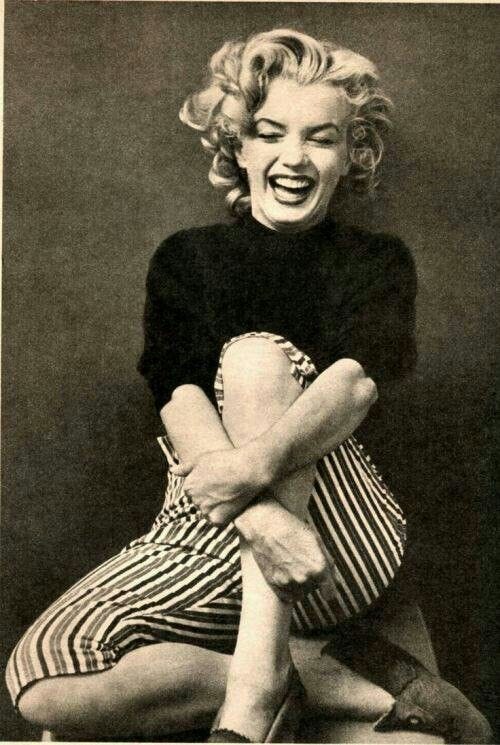

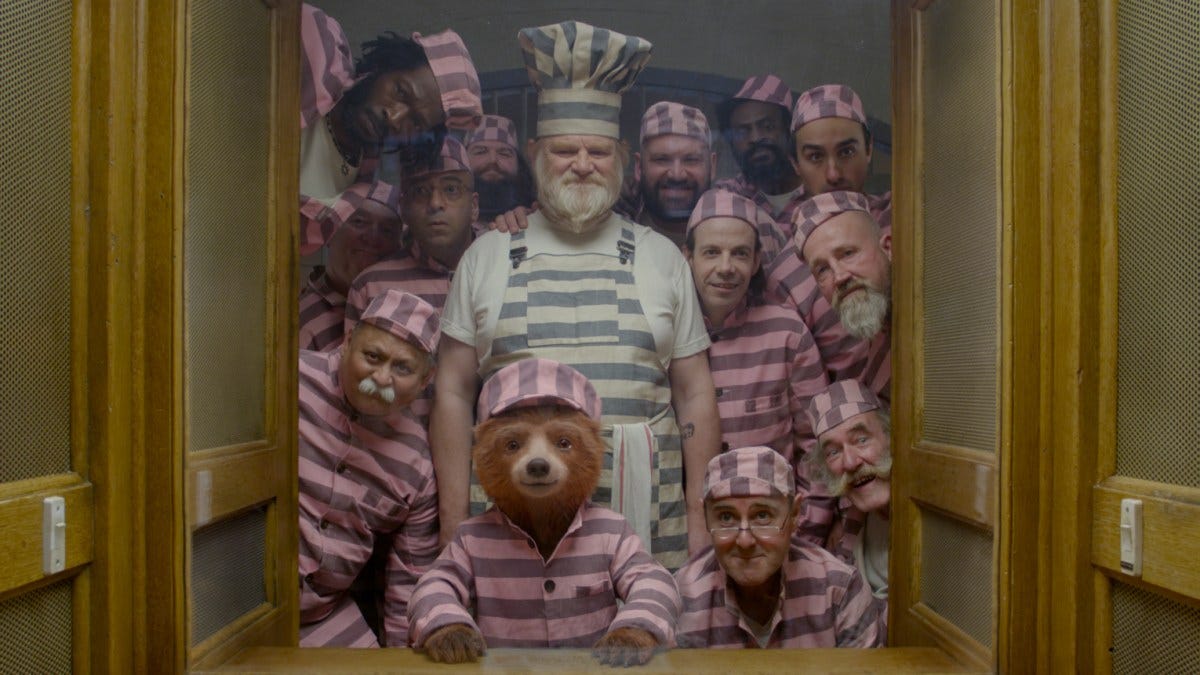
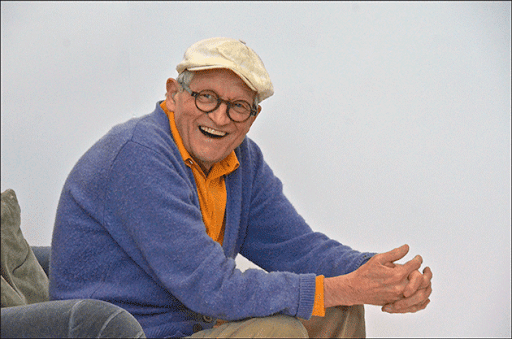
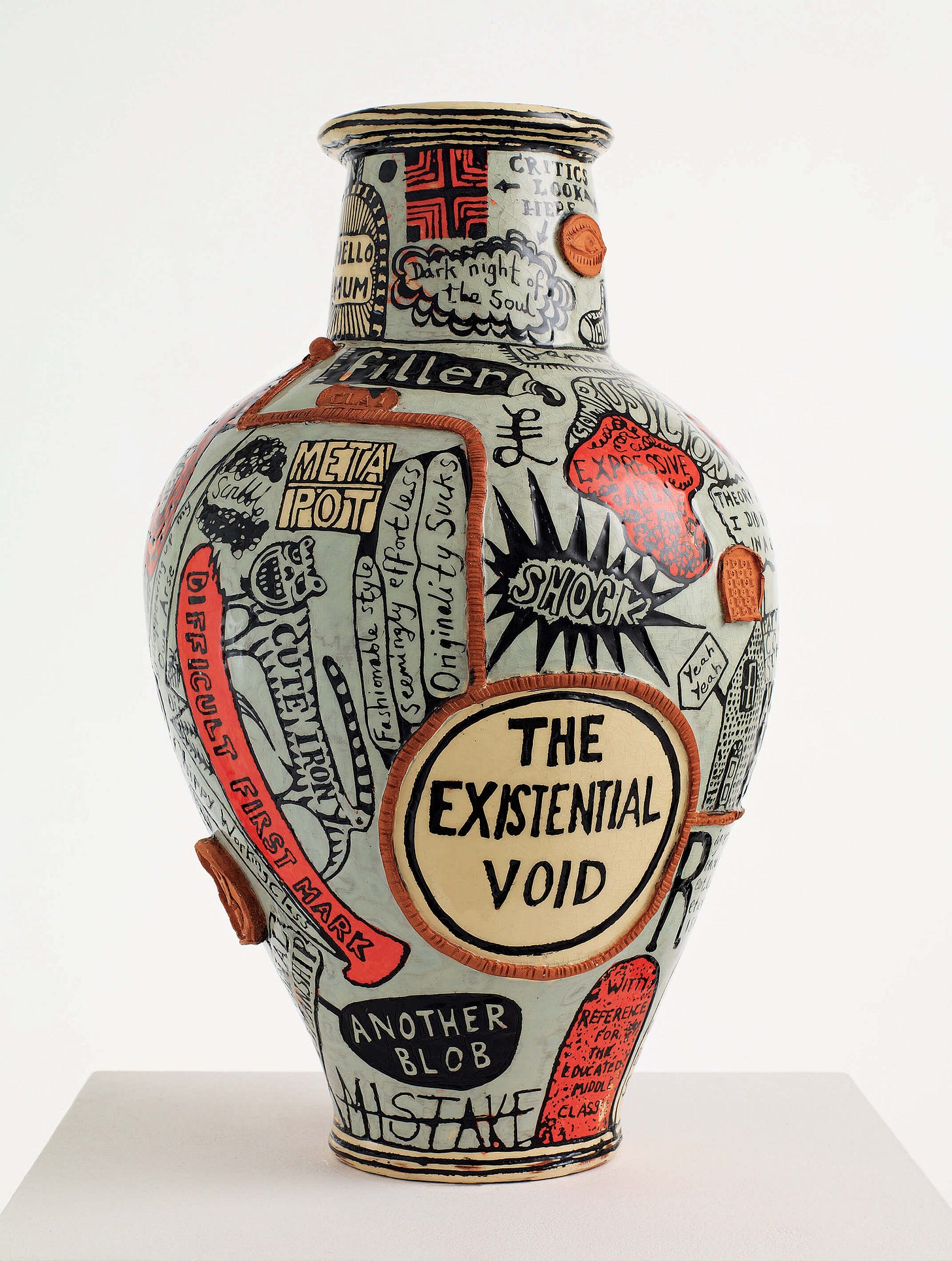


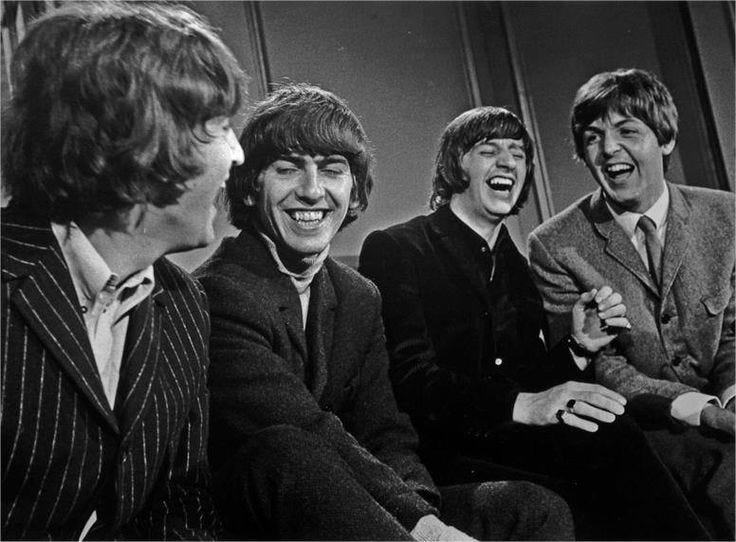
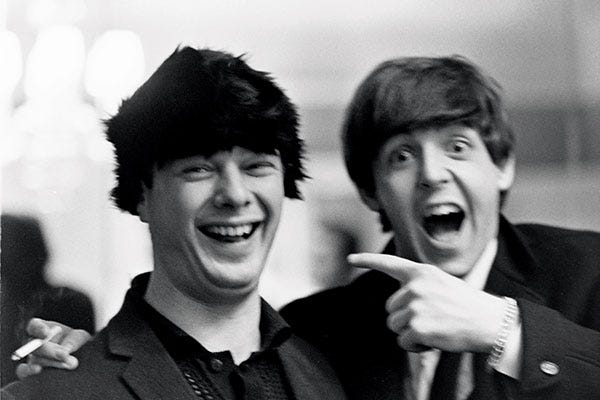
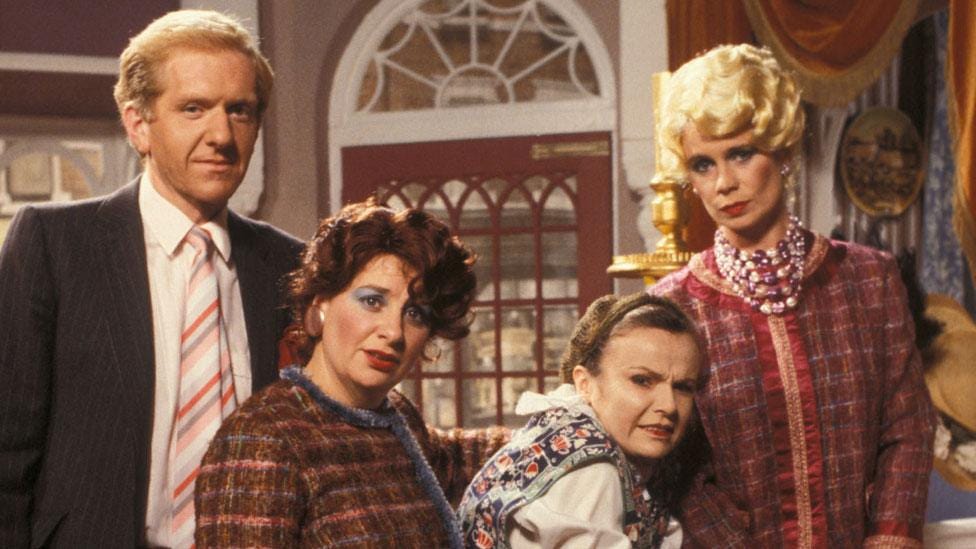
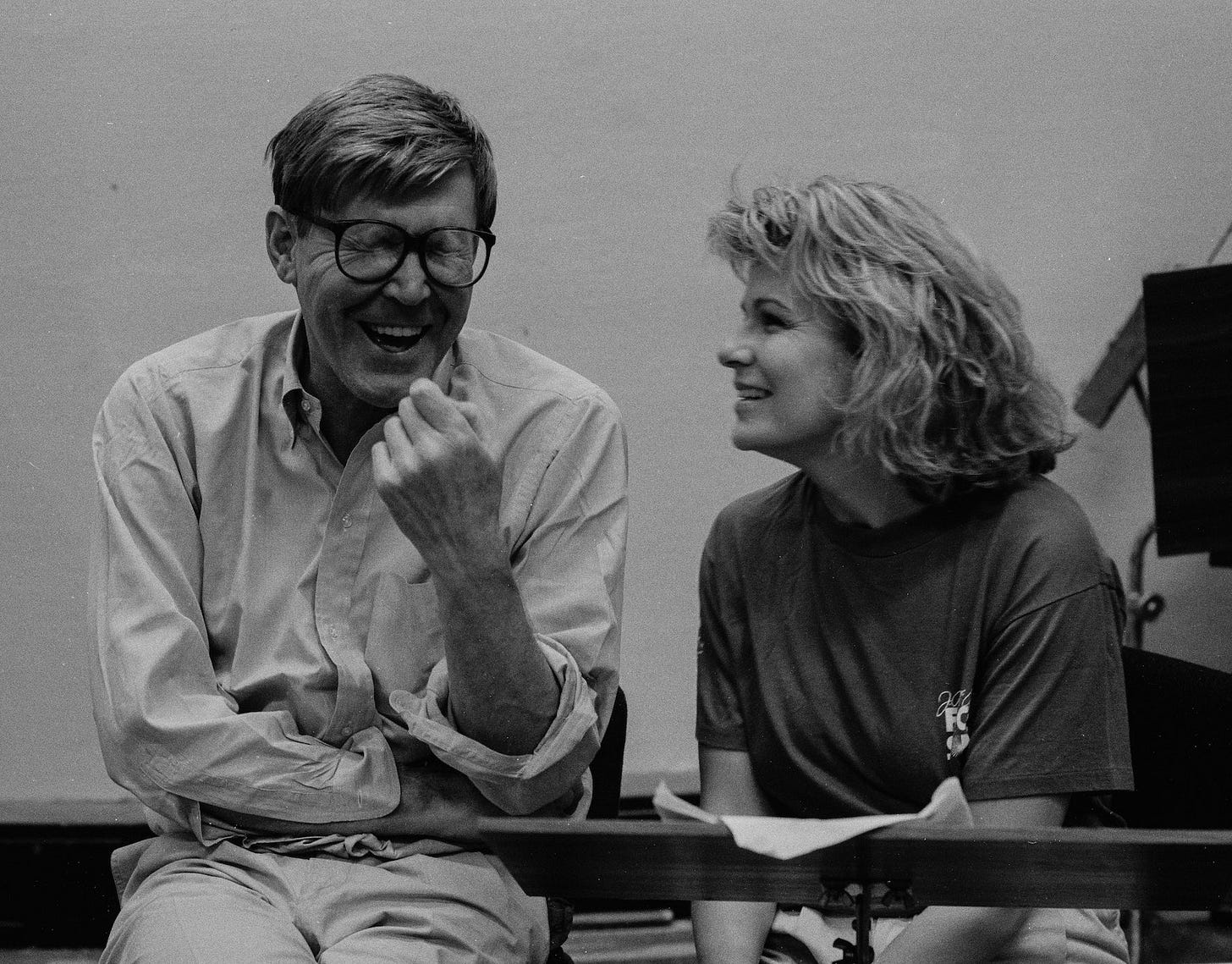
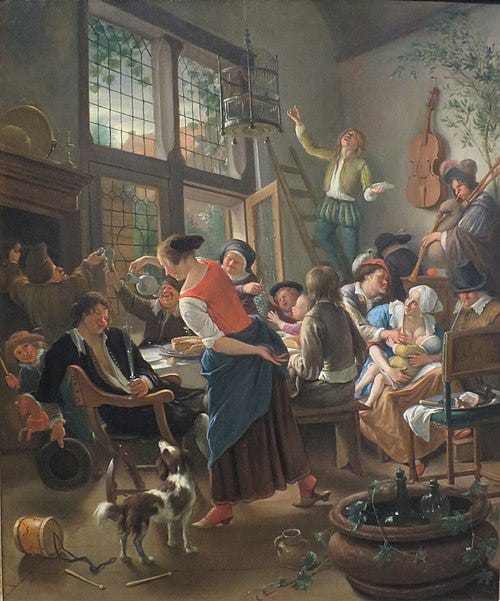
Oh Jane! You’ve made me laugh. You’ve made me cry.
https://laingartgallery.org.uk/whats-on/with-these-hands
Jane - you might like this
Best wishes Linda